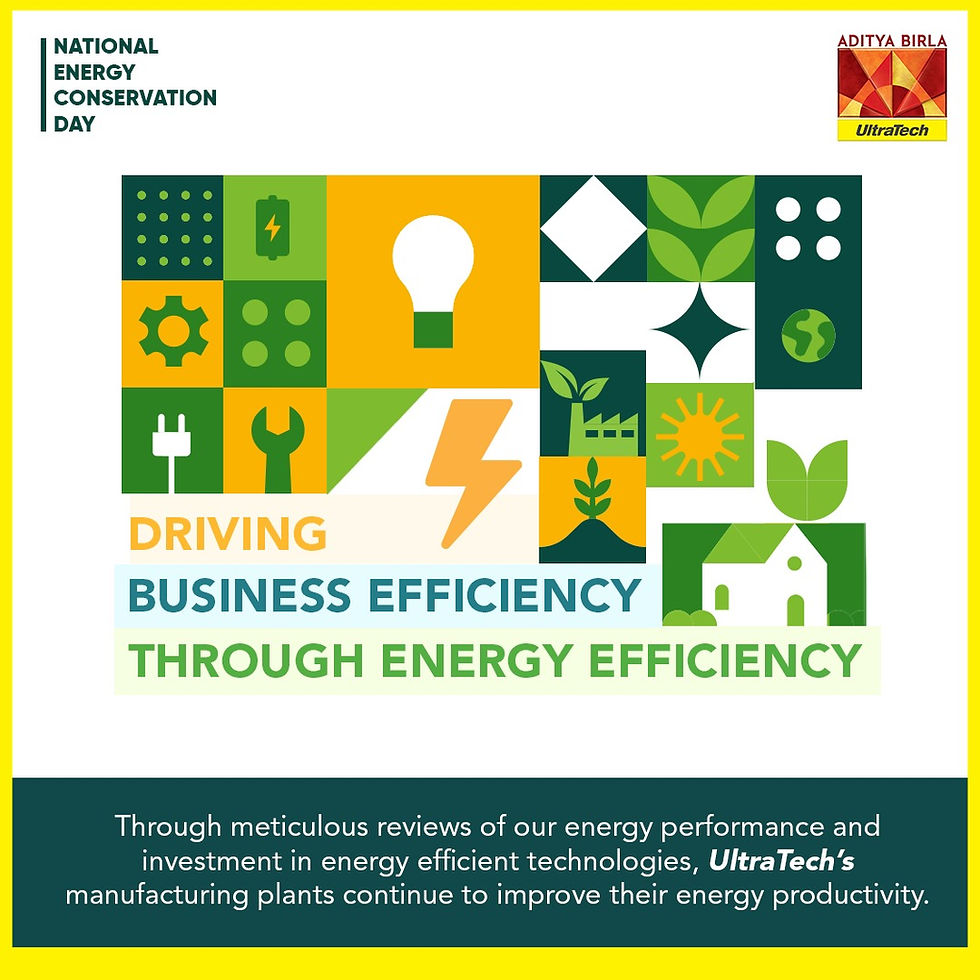How will UltraTech’s goal of 100% renewable energy by 2050 impact its carbon footprint!
- nvshah0610
- Jul 28, 2025
- 2 min read

UltraTech Cement’s goal to achieve 100% renewable energy for its electricity requirements by 2050 will significantly reduce its carbon footprint, aligning with its commitment to net-zero emissions and sustainable growth. This transition is part of a broader strategy to decarbonize its operations and build a greener future.
Key impacts on its carbon footprint include:
Substantial Reduction in Carbon Emissions: By shifting fully to renewable electricity sources, UltraTech aims to drastically cut Scope 2 greenhouse gas (GHG) emissions, which relate to energy consumption from purchased electricity. The company has committed to reducing Scope 1 GHG intensity by 27% and Scope 2 GHG intensity by 69% by 2032 from a 2017 baseline, with science-based targets validated by the Science Based Targets Initiative (SBTi).
Increased Use of Green Energy and Waste Heat Recovery: UltraTech currently uses about 22-24% renewable energy in its operations, including solar power, waste heat recovery systems (WHRS), and contracted renewable energy. It plans to increase this share to 60% by 2026 and 85% by 2030, progressively cutting fossil fuel dependency and associated emissions.
Operational Demonstrations: Some manufacturing plants have already operated entirely on renewable energy for months at a time, resulting in tangible CO2 emission reductions (e.g., over 23,000 tons per annum reduced at specific plants).
Complementary Initiatives: The target complements other sustainability efforts like reducing clinker use, employing alternative fuels (industrial and municipal waste), and adopting innovative decarbonization technologies (e.g., the RotoDynamic Heater™ technology and exploring Carbon Capture, Utilization, and Storage).
Alignment with Global Climate Goals: The 2050 renewable energy target aligns with the Paris Agreement to limit global warming to 1.5°C and makes UltraTech a founding member of the Global Cement and Concrete Association's net-zero roadmap.
In summary, transitioning to 100% renewable electricity by 2050 will drastically lower UltraTech Cement’s carbon footprint, mainly by reducing emissions from electricity consumption and part of its fossil fuel use. This initiative, combined with enhanced energy productivity and innovative green technologies, underpins UltraTech’s pathway to full decarbonization and leadership in sustainable cement manufacturing.
If you want, I can provide more detailed figures on emission reductions or explain how these plans compare to other global cement producers.
SOURCE:-ULTRATECH CEMENT





Comments